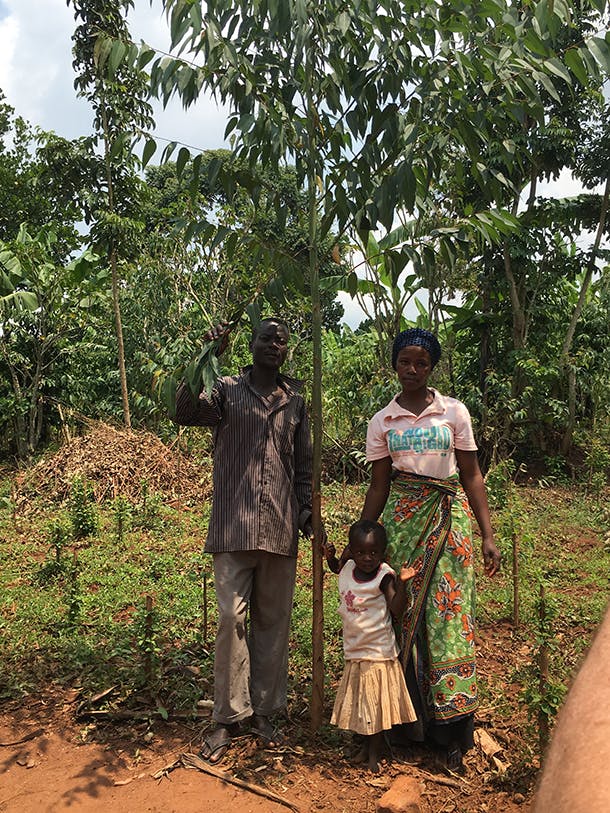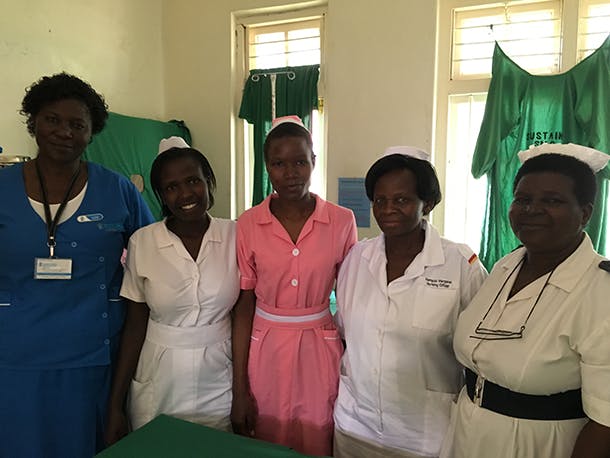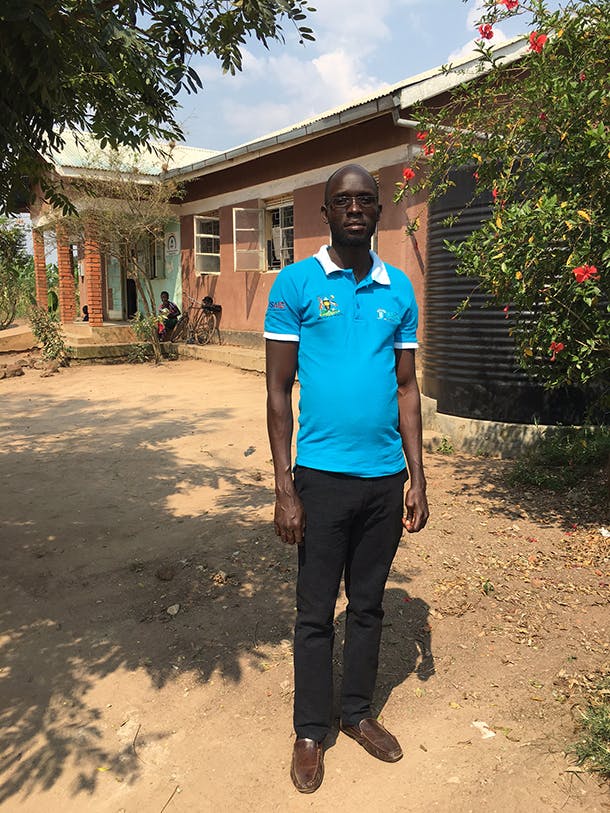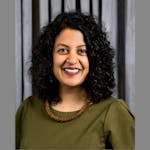Earlier this month, I had the opportunity to visit Uganda to learn about how the country is providing reproductive health information and services for men, women, and their communities and ended up having one of the most profound trips of my professional life.
Uganda has seen some progress towards the Millennium Development Goals and the Sustainable Development Goals, but faces significant challenges when it comes to providing essential health care to its population. The Ugandan government spends only about $11 per person on health care, in stark contrast to World Health Organization guidelines that it should be $33 per person.
Nearly 80% of Uganda’s population is under 30 years old – one of the youngest populations in the world – and only 30% of these kids are even finishing primary school. In fact, we heard that the face of Uganda is on average a 14-year-old girl. By the age of 18, almost a quarter of all women are pregnant or have had a baby. They deserve the right to information and services that can allow them to plan their families and their lives, but all too often, that counseling and those services are not available.
Despite these odds, I was proud to see the extraordinary work of individual Ugandans striving to improve life for their families, community and country. Here are just three of the many inspiring people I met on the trip. Their stories reinforced to me just how empowering access to family planning is: It is a tool that allows women and couples to live the lives they choose, to be innovators and entrepreneurs, to be healthy during childbirth, and to provide better lives for their children.
Here are three forces for change I met during the trip.
Prossy Namukwaya: Client, Mother, and Entrepreneur

(Prossy pictured with her husband and 2-year-old daughter in front of their eucalyptus tree nursery.)
I met Prossy, her husband Abdu, and their four children in the Kayunga District of Uganda, where only about 5% of women of reproductive age use an effective form of family planning. Many people in this area have a negative perception of contraception and believe that it can cause cancer or severe birth deformities. Abdu shared with me that he and his male friends had been raised with these myths. Once he got accurate information, his perception changed.
Now, Prossy is part of the small minority of women in the community who has decided – with the full support of her husband – to use family planning. For the last three years, she has received the Depo Provera birth control shot, which lasts for three months at a time.
Prossy wants to have more kids, but she is using family planning as she and her husband first want to invest time and resources in their four children. Prossy and Abdu are farmers and entrepreneurs. They’ve earned a basic income from growing beans and corn, but have also just started a nursery for eucalyptus trees and brick production with the hope of providing more for their family.
Prossy told me that if she didn’t have these family planning services, she doesn’t know what she would do. Fortunately, Prossy can rely on Yusuf, a community health worker, who visits her regularly, and the local health facility to provide a variety of family planning options and counseling to meet her needs, thanks to the efforts of the nongovernmental organization FHI 360.
Catherine Mayinja: Family Planning Educator and Nurse-Midwife

(Catherine, in blue scrubs, pictured with nurse-midwife trainees at the Jinja Regional Referral Hospital.)
We visited one of the highest quality public hospitals that Uganda has to offer in the rural area of Jinja near the start of the river Nile. There we met Catherine, a nurse-midwife from Marie Stopes International (MSI) who works in the facility through an innovative “dedicated service provider” model. She will be posted there through July 2017, and her charge is to strengthen the hospital’s capacity by mentoring doctors, midwives, and nurses on a range of family planning services including both short-term methods like birth control pills and long-term methods like intra-uterine devices.
Catherine’s expertise is critical. The director of the hospital explained to me that access to family planning is a major pillar to help ensure mothers are safe and healthy when they decide to have children. She told me that a large percentage of their patients are girls under the age of 18 who missed out on family planning information in school and at home. She also explained that the most common cause of maternal mortality occurs from childbirth-related bleeding in women who were unable to access family planning and got pregnant before they were ready.
Catherine’s training has already made an impact. One of the nurses undergoing Catherine’s training told me that many young people seek emergency contraception or have complications from unsafe abortion – too often due to coerced sex – and she’s now better able to provide them with accurate information, counseling, and a broad range of family planning options.
Dr. Geoffrey Okot: Head of Outreach, MSI Uganda and Doctor, Community Health Worker, and Activist

(Dr. Geoffrey Okot)
In a country where there is one doctor for every thousand Ugandans, Geoffrey changed the course of his career so he can reach as many people as possible with quality, respectful health care. Geoffrey worked at a hospital where he treated individual patients, but knew that he could make a greater impact if he could reach more people. He jumped at the chance to head up MSI-Uganda’s outreach efforts, which brings a portable medical clinic to rural areas and sets up camp once a month.
He oversees an operation of 27 teams, each of which is set up with a medical doctor, two nurses, and a driver. On the days when they set-up shop, each site sees an average of 22 patients for family planning in one day. We traveled with Geoffrey to a health center on one of their outreach days. This particular health facility serves about 60,000 people and is run by two midwives who handle up to 10 births a day.
On the day we visited, there were already long lines for the services. Normally, the health facility only offers birth control shots, condoms, and pills, but with the support of Geoffrey’s team, the MSI doctors can offer longer-term methods of family planning for women to have more options.
We also saw many women waiting for prenatal and postnatal counseling, vaccinations for their children, and a large group of women some of whom had walked almost 20 miles to learn more about family planning options. On this day, the site had already seen 50 women who came seeking a long-term method of family planning.
We met many women and men who have benefited from the work of Geoffrey and his team, including Harriett Nakiganda, a 35-year-old woman and mother to eight who had returned for a follow-up visit after a tubal ligation. She underwent this procedure without her husband’s knowledge and shared that having access to this method was a good thing for her as she did not want to have more children.
As an American, I was profoundly grateful to learn that all of these efforts are supported by U.S. government assistance. The U.S. commits almost $14 million annually to family planning programs in Uganda and plays a critical role in ensuring women and their families are getting increased access to the reproductive health services they want and need. For the women and men I met, this support means everything.
To learn more, visit universalaccessproject.org.



 View All Blog Posts
View All Blog Posts